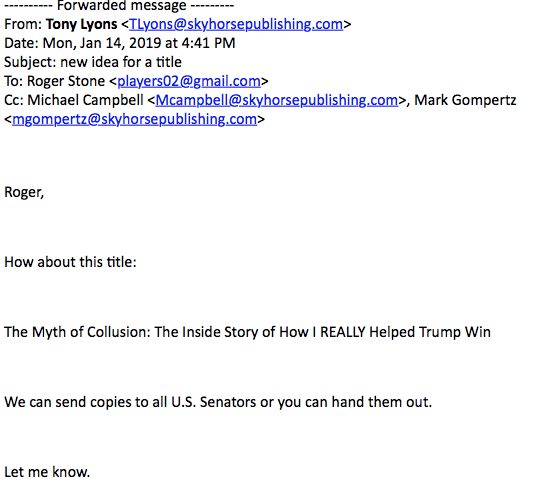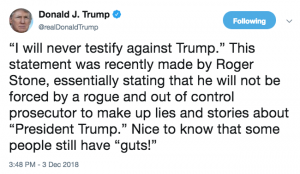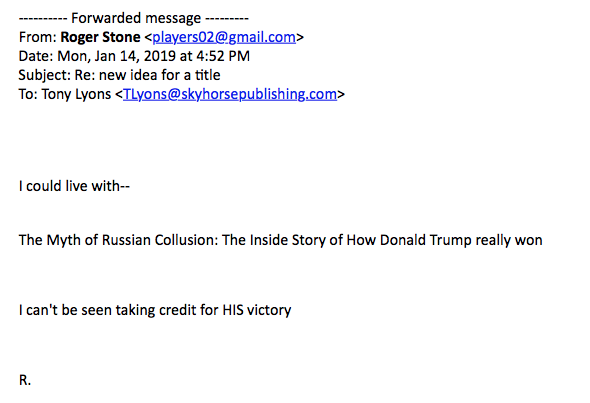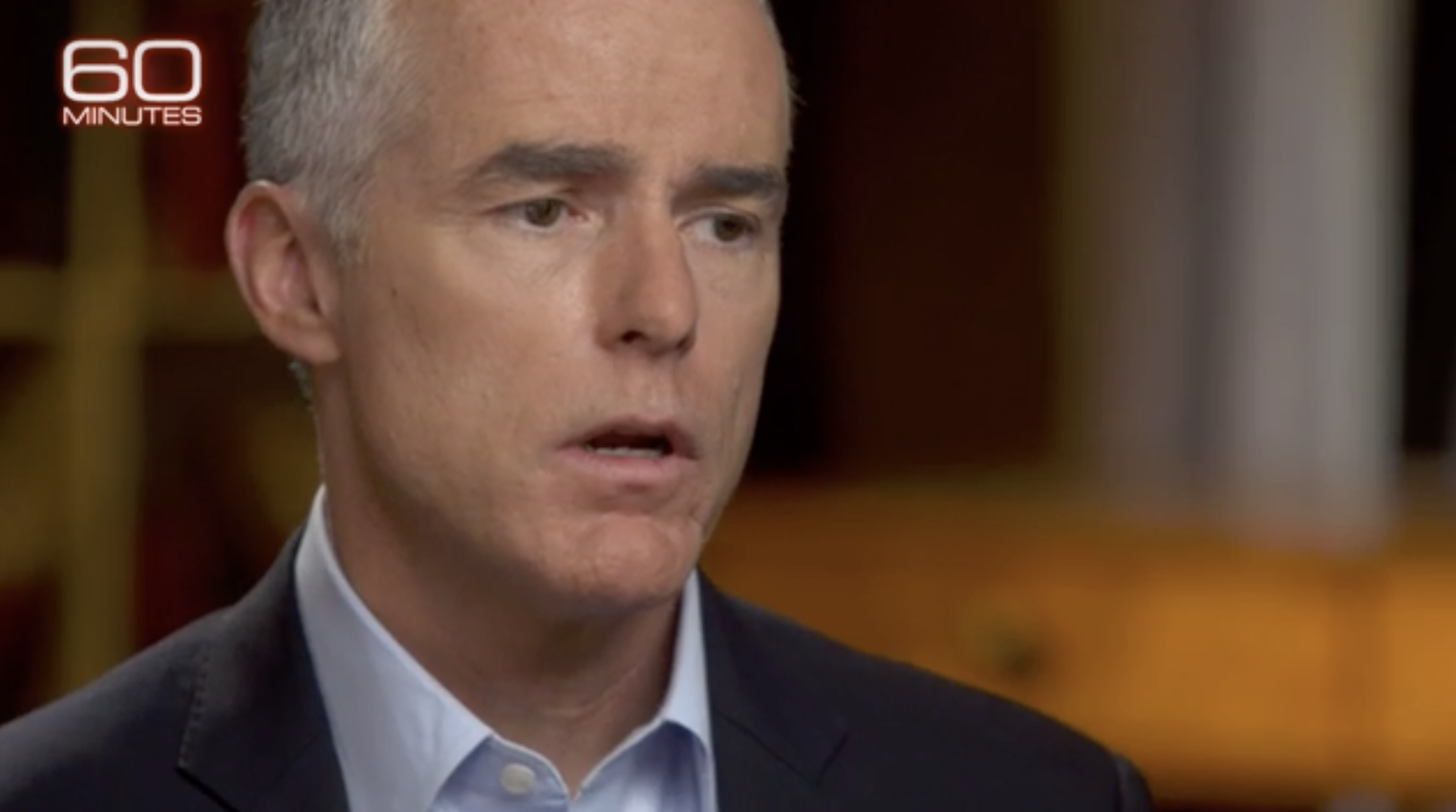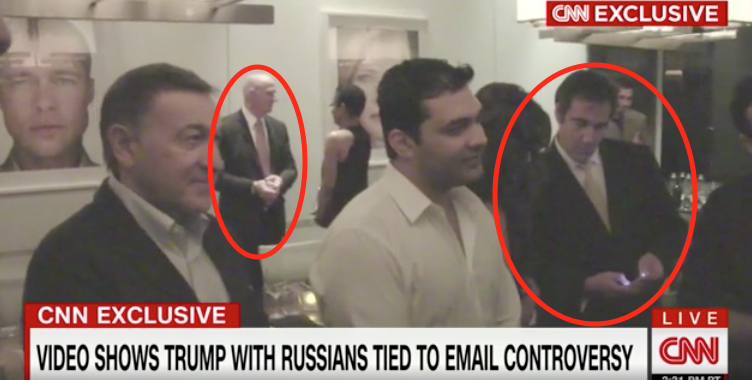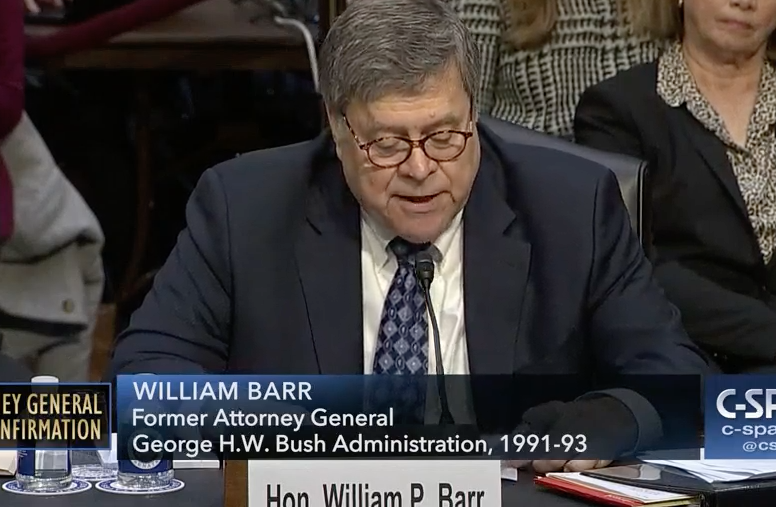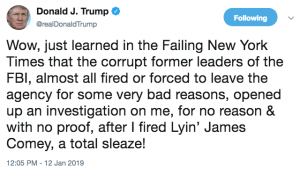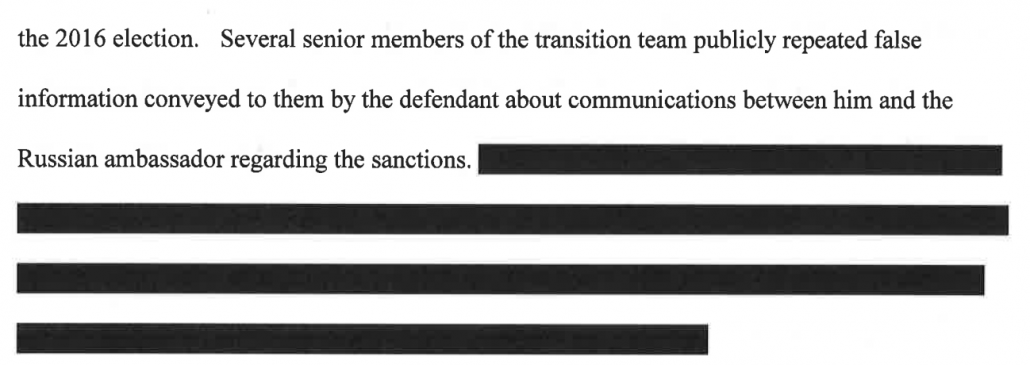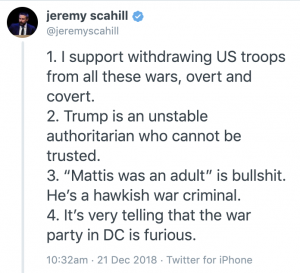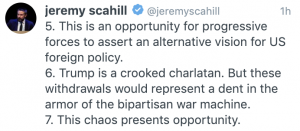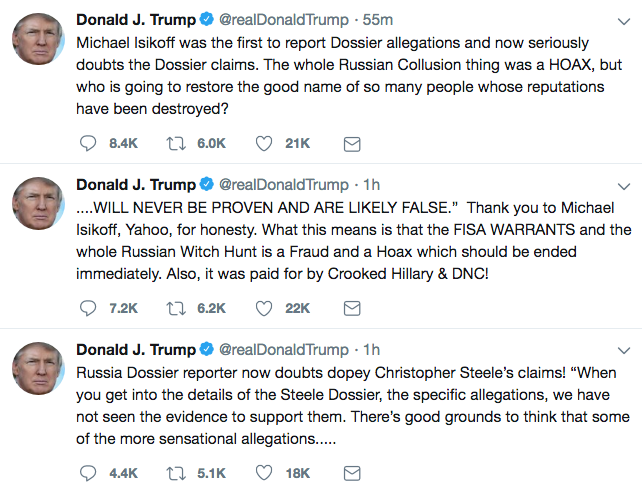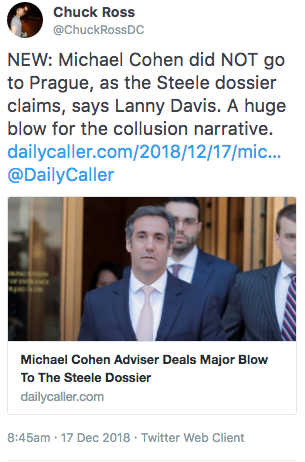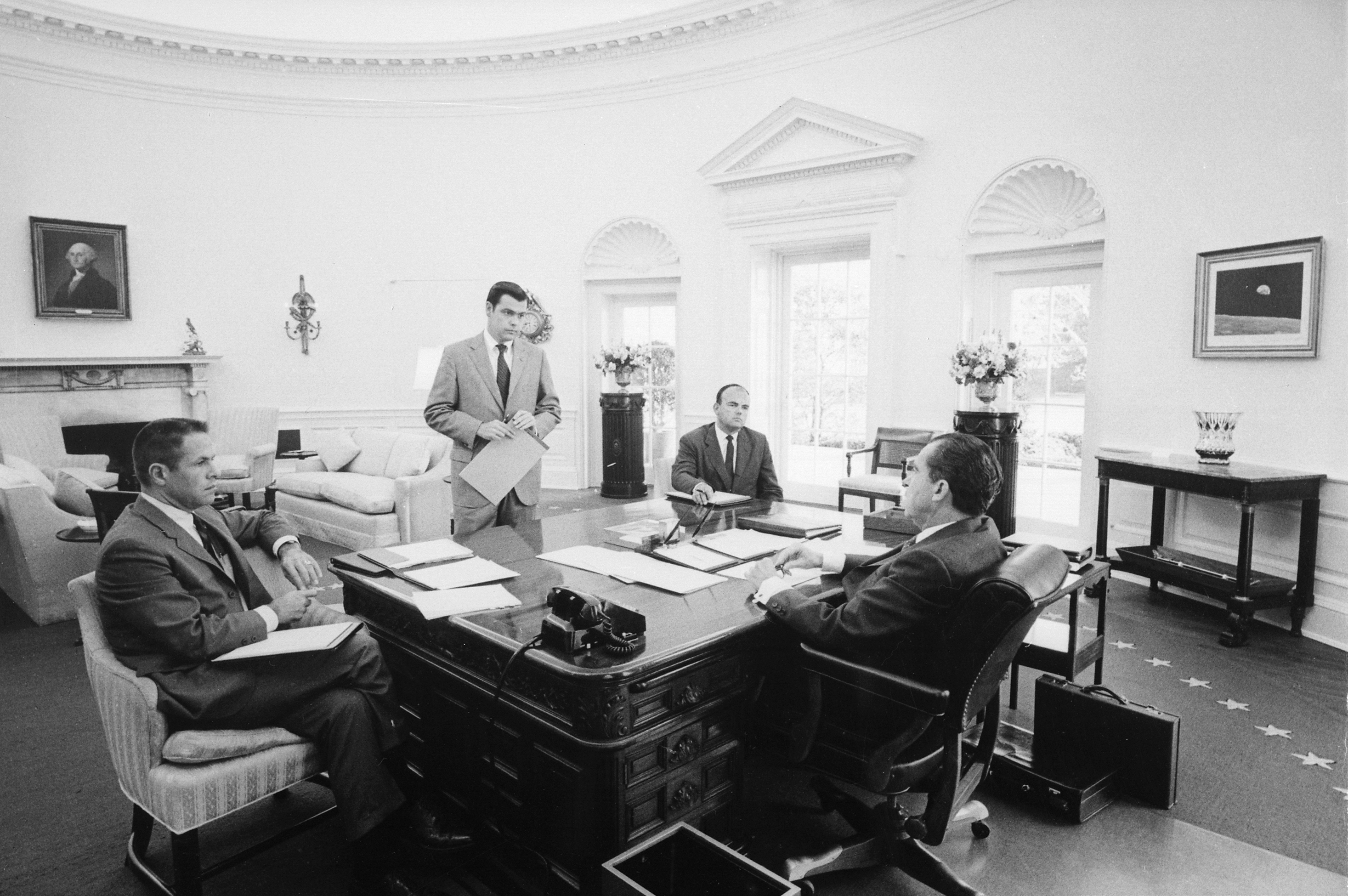Rod Rosenstein’s Unfortunate Vocabulary: Defining a Criminal Investigation by “Links” and “Collusion”
Rod Rosenstein is the very unlikely hero of the Mueller investigation. “Rod is a survivor,” Jim Comey said after getting fired. “And you don’t get to survive that long across administrations without making compromises.”
Yet here we are, 22 months after he appointed Robert Mueller to investigate an investigation Trump tried to kill by firing Comey, awaiting the results of that investigation.
At times, I think Rosenstein didn’t imagine (and doesn’t now acknowledge) the damage his bend-don’t-break has done along the way. While based off the very sound precedent that existed until Comey’s declination speech about Hillary, it seems ridiculous for him to claim that the full results of the Mueller investigation can’t be shared with Congress, as he’s now claiming, given how he has provided unprecedented disclosure to Congress about the investigation already, including the first ever unsealed probable cause FISA application.
It will take some years to measure whether Rosenstein chose the best or perhaps only the least worst approach to the last several years.
But there’s one thing he did that really makes me uncomfortable, today, as we all await the results of the Mueller report: his mandate to Mueller.
As has been noted countless times in the last 22 months, Rosenstein asked Mueller to investigate:
-
- any links and/or coordination between the Russian government and individuals associated with the campaign of President Donald Trump; and
- any matters that arose or may arise directly from the investigation;
- any other matters with the scope of 28 C.F.R. § 600.4(a).
- if the Special Counsel believes it is necessary and appropriate, the Special Counsel is authorized to prosecute federal crimes arising from the investigation of these matters.
We actually know the answer to the first bullet, in part: As I laid out here, during five key interactions pertaining to the question of a possible conspiracy between Trump’s associates and Russia, there was direct contact between someone the government has deemed an agent of Russia and the Trump campaign:
- January 20, 2016, when Michael Cohen told Dmitry Peskov’s personal assistant that Trump would be willing to work with a GRU-tied broker and (soft and hard) sanctioned banks in pursuit of a $300 million Trump Tower deal in Russia.
- June 9, 2016, when Don Jr, knowing that currying favor with Russia could mean $300 million to the family, took a meeting offering dirt on Hillary Clinton as “part of Russia and its government’s support for Mr. Trump.” At the end of the meeting, per the testimony of at least four attendees, Don Jr said they’d revisit Magnitsky sanctions if his dad won.
- August 2, 2016, when Paul Manafort and Rick Gates had a clandestine meeting with Konstantin Kilimnik at which Trump’s campaign manager walked Kilimnik through highly detailed poll data and the two discussed a “peace” plan for Ukraine understood to amount to sanctions relief.
- December 29, 2016, when (working on instructions relayed by KT McFarland, who was at Mar-a-Lago with Trump) Mike Flynn said something to Sergey Kislyak that led Putin not to respond to Obama’s election-related sanctions.
- January 11, 2017, when Erik Prince, acting as a back channel for Trump, met with sanctioned sovereign wealth fund Russian Direct Investment Fund CEO Kirill Dmitriev.
That Peskov’s assistant (and whatever representative from Putin’s office that called Felix Sater the next day), Sergey Kislyak, and Kirill Dmitriev are agents of Russia is clear. With the indictment of Natalia Veselnitskaya in December, the government deemed her to be working as an agent of Russia during the same time period she pitched sanctions relief to Trump’s campaign. And while the government hasn’t proven it beyond quoting Rick Gates acknowledging he knew of Konstantin Kilimnik’s past with the GRU and FBI’s belief that he continues to have ties, the government certainly maintains that Kilimnik does have ties to Russian intelligence.
Those are links. It’d be useful to have an official report on them. But since Mueller hasn’t charged them as a conspiracy, we may only learn what we’ve seen in plea agreements or official testimony to Congress.
Likewise Rosenstein’s invocation of “collusion” in the unredacted parts of his memo describing the scope of the investigation as it existed in August 2017 (it expanded and contracted after that point, so there are like different memos).
Allegations that Paul Manafort:
- committed a crime or crimes by colluding with Russian government officials with respect to the Russian government’s efforts to interfere with the 2016 election for President of the United States, in violation of United States law;
Here, unlike in the initial mandate, Rosenstein at least noted that Mueller was assessing whether crimes were committed in using that squishy language. But he used the word “collusion,” which started to be politicized by March 2017, when Comey tried to correct it once and for all.
I have been authorized by the Department of Justice to confirm that the FBI, as part of our counterintelligence mission, is investigating the Russian government’s efforts to interfere in the 2016 presidential election, and that includes investigating the nature of any links between individuals associated with the Trump campaign and the Russian government and whether there was any coordination between the campaign and Russia’s efforts. As with any counterintelligence investigation, this will also include an assessment of whether any crimes were committed.
[snip]
Collusion is not a legal term. It is not one I have used today. I said we are investigating to see if there is any coordination between people associated with the campaign– [my emphasis]
Sure, “collusion” might be understood to incorporate a bunch of possible crimes, and so appropriately didn’t limit Mueller to one specific crime as he investigated Manafort (but then, so did the term, “coordination”). But I nevertheless think that using the word has confused the issue of what Rosenstein intended Mueller to be able to reveal, which would instead be conspiracy and a bunch of other crimes covering up evidence of coordination that Mueller has found necessary and appropriate to charge, and not whether there was “collusion.”
All the while, people on both sides of this debate have taken “collusion” to mean whatever minimalist or maximalist interpretation of wrong-doing that best serves their side.
There are two things at issue: whether Trump and his aides coordinated in a way that is criminal, which would be a conspiracy, and whether Trump has coordinated with Russia in a way that would be an abuse of power and/or puts the nation at risk.
Both are legitimate questions. And while Rosenstein says only crimes that are indicted are appropriate to reveal (and he may well be right about that, as a principle), he did ask Mueller to conduct an investigation of that other stuff, and Congress has deferred to Mueller even while that other stuff is squarely within their mandate.
Ideally, this weeks focus on Mueller’s discoveries would be on what the actual evidence showed, which we know to include, at a minimum, the following:
- Trump pursued a ridiculously lucrative $300 million real estate deal even though the deal would use sanctioned banks, involve a former GRU officer as a broker, and require Putin’s personal involvement at least through July 2016.
- The Russians chose to alert the campaign that they planned to dump Hillary emails, again packaging it with the promise of a meeting with Putin.
- After the Russians had offered those emails and at a time when the family was pursuing that $300 million real estate deal, Don Jr took a meeting offering dirt on Hillary Clinton as “part of Russia and its government’s support for Mr. Trump.” At the end (per the sworn testimony of four people at the meeting) he said his father would revisit Magnitsky sanctions relief if he won. Contrary to the claim made in a statement authored by Trump, there was some effort to follow up on Jr’s assurances after the election.
- The campaign asked rat-fucker Roger Stone to optimize the WikiLeaks releases and according to Jerome Corsi he had some success doing so.
- In what Andrew Weissmann called a win-win (presumably meaning it could help Trump’s campaign or lead to a future business gig for him), Manafort provided Konstantin Kilimnik with polling data that got shared with Ukrainian and Russian oligarchs. At the same meeting, he discussed a “peace” plan for Ukraine that would amount to sanctions relief.
- Trump undercut Obama’s response to the Russian hacks in December 2016, in part because he believed retaliation for the hacks devalued his victory. Either for that reason, to pay off Russia, and/or to pursue his preferred policy, Trump tried to mitigate any sanctions, an attempt that has (with the notable exception of those targeting Oleg Deripaska) been thwarted by Congress.
Instead, however, we’re still arguing about a word — collusion — that was stripped of all meaning years ago, with the result that Mueller’s presumably very measured assessment of what happened cannot serve as the arbiter of truth we need.
Rosenstein may well be the unlikely hero of preserving some semblance of rule of law in this country. But along the way, his choice of language has unfortunately twice fostered the confusion about where the line between crime and misconduct is.
As I disclosed last July, I provided information to the FBI on issues related to the Mueller investigation, so I’m going to include disclosure statements on Mueller investigation posts from here on out. I will include the disclosure whether or not the stuff I shared with the FBI pertains to the subject of the post.



